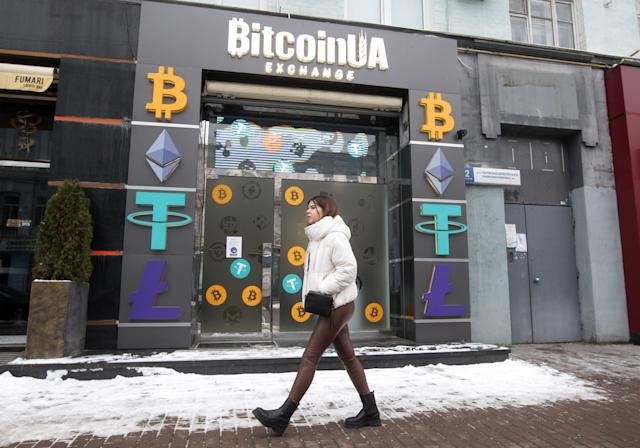
The Ukrainian government will issue non-fungible tokens (NFTs) to fund its army in the fight against Russian invasion. Vice Prime Minister of Ukraine, Mykhailo Fedorov, took to Twitter yesterday to share the decision to “cancel [a crypto] airdrop” and announce NFTs “soon”.
The move comes in the same week as the country raised more than £200m from the sale of war bonds, a decision which was similarly shared on Twitter. Ukraine’s government is also seeking funds in more traditional ways, with the World Bank and International Monetary Fund working together to provide a multi-billion-dollar emergency support package.
However, it’s clear the Ukrainian government is looking to more modern and digital methods to raise funds for their military. The official Twitter account of Ukraine and Fedorov both appealed for cryptocurrency donations late last week, with donations currently exceeding $50m.
“Stand with the people of Ukraine. Now accepting cryptocurrency donations. Bitcoin, Ethereum and USDT,” @Ukraine posted alongside addresses for two cryptocurrency wallets.
According to Elliptic, a blockchain analysis company, there have been more than 100,000 donations since the invasion started, including a $5.8m donation from Gavin Wood, the British co-founder of blockchain platform Polkadot.
Fedorov wrote definitively that the government does “not have” plans to issue any fungible tokens at the moment—a reference to an earlier tweet that had said all crypto donors would be given a crypto token reward.
However, Experts cautioned that the launch of a Ukrainian NFT would likely trigger a wave of crypto fraudsters looking to make a quick buck on the interest. “As we have seen with the lightning speed in which cybercriminals can capitalize on a global crisis, this will be yet another area they will attempt to exploit,” said ESET cybersecurity expert Jake Moore.
“Scammers have been very quick to set up fake donation sites and with the birth of NFTs, this will be no different.” “In principle this is another potentially lucrative avenue for people to help out in the crisis from around the world but it comes with a heavy price tag if people are unaware of the many pitfalls in this relatively new technology,” he added.